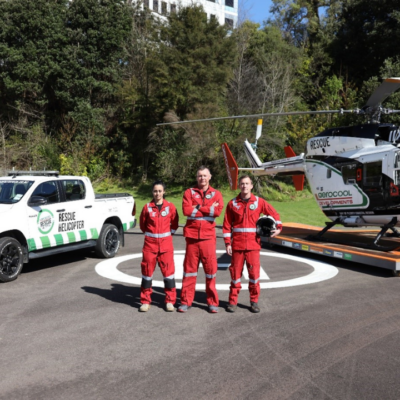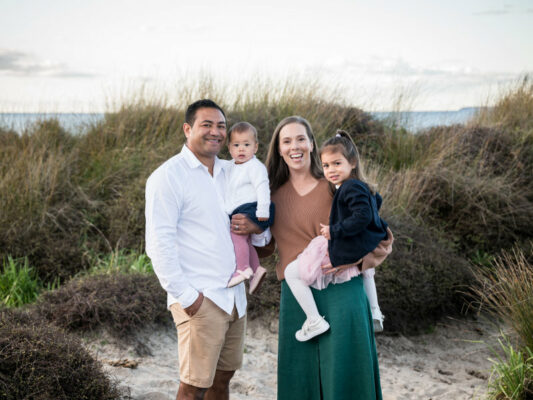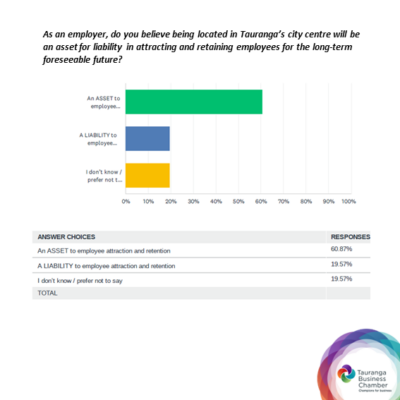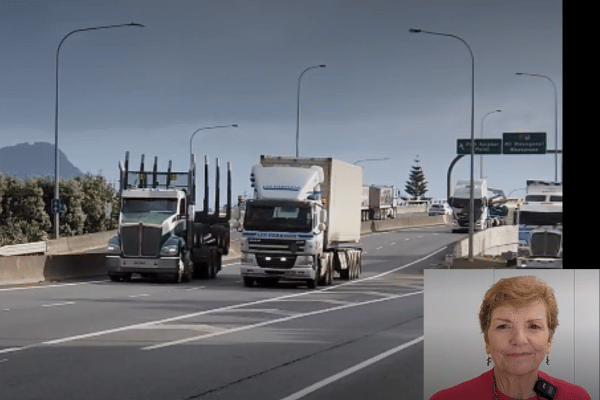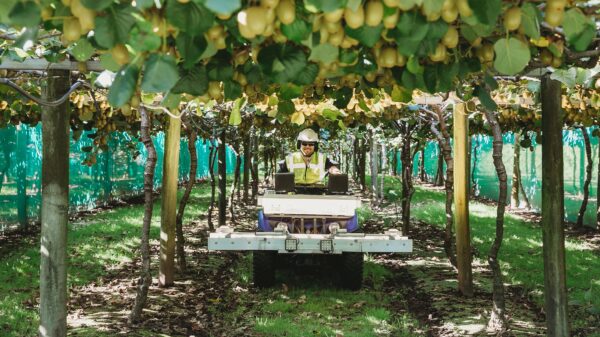On September 30, 2021, the Government announced a one-off resident visa. The 2021 Resident Visa will be available to most onshore (in New Zealand) work visa holders and their immediate family members.
On October 29, 2021, Immigration New Zealand released the full policy for the one-off 2021 Resident Visa.
To guide you through this, Lauren Qiu from Stay Legal explains the 2021 Resident Visa.
Eligibility
To be eligible, applicants must have been in New Zealand on 29 September 2021 and must hold or have applied for (and subsequently be granted) one of the eligible work visas listed below. They must also meet one of the following criteria both on 29 September 2021 and on the date of application:
- Settled: Lived in New Zealand for 3 or more years (definition below); or
- Skilled: Earn above the median wage (definition below); or
- Scarce: Work in a Scarce List role. This includes:
- The Long Term Skill Shortage List, or
- Roles that require occupational registration and work in the health or education sector, or
- Personal care or other critical health worker roles, or
- Specified primary industry roles.
The key point to note here is that applicants must only meet 1 of the criteria listed in the bullet points above. This is because it states “or” not “and”.
Applicants need to be on an eligible visa at the time of application. For example, if an applicant was initially on an Essential Skills Work Visa (an eligible work visa), but later lost their job and changed to a Student Visa (non-eligible temporary visa) and they remained on the Student Visa, they may no longer be eligible for the 2021 Resident Visa.
If an applicant met the criteria for eligibility but was in Australia on 29 September 2021 and departed New Zealand for Australia between 6 April 2021 and 23 July 2021 (inclusive), they may still be eligible, but they must be in New Zealand to apply.
An application made by a principal applicant who is not in New Zealand at the time of application will be declined, unless the principal applicant meets the Dependent Children aged 25 years or older requirement (explained below).
The Settled Criteria
To meet the Settled criteria, applicants need to be in New Zealand for 3 years. This means applicants who have lived in New Zealand for the past 3 or more years and:
- Have arrived in New Zealand on or before 29 September 2018, and
- Have spent a minimum of 821 days in New Zealand between 29 September 2018 and 29 September 2021 (inclusive).
The time spent in New Zealand does not need to be a consecutive 3 years. There is no minimum number of days a person needs to spend within each calendar year. Applicants can request their travel movements from Immigration New Zealand to check their total days.
The Skilled Criteria
To meet the Skilled criteria, on 29 September 2021, applicants will need to either:
- Be employed with remuneration at or above the median wage ($27.00 per hour or above) and working in accordance with the conditions of their visa, or
- Have made an application, Variation of Conditions, or Request for Reconsideration for an eligible visa that was subsequently granted/varied and had an offer of employment with remuneration at or above the median wage.
Immigration Officers will use the information provided in the applicant’s previous work visa and the information provided on the 2021 Resident Visa application form to make an assessment.
Applicants must also be paid at or above the median wage at the time of application. Applicants who met the Skilled criteria on 29 September 2021 may also choose to change to meet the Scarce criteria at the time of application instead. Applicants must also be in genuine full-time employment (defined as an average of 30 hours per week).
The pay rate will not include any commissions/allowances/bonuses, Immigration New Zealand will look at the base rate. Applicants on a salary should take care, as Immigration New Zealand will divide an applicant’s annual income by the maximum hours that they work (if they work a range of hours).
A full breakdown of how salary calculations work can be found here. For applicants working in the Aged, Residential Care, or Disability Care industry, some sleeping hours may be excluded.
Self-employed contractors with a consistent history of contract work and a current contract can be eligible for the 2021 Resident Visa.
Immigration Officers will use the information provided in the applicant’s previous work visa and the information provided on the 2021 Resident Visa application form to make an assessment. Immigration New Zealand will allow for some flexibility if an applicant’s pay or hours are temporarily reduced due to the business being affected by Covid-19 related restrictions (such as a Covid-19 Alert Level changes).
The Scarce Criteria
To meet the Scarce criteria, on 29 September 2021, applicants will need to either:
- Be in employment in a Scarce List role (listed above), or
- Have made an application, Varication of Conditions, or Request for Reconsideration for an eligible visa that was subsequently granted/varied and had an offer of employment in a Scarce List role.
Applicants must also be in a Scarce List role at the time of application. Applicants who met the Scarce criteria on 29 September 2021 may also choose to change to meet the Skilled criteria at the time of application instead. Applicants must also be in genuine full-time employment (defined as an average of 30 hours per week). Again, Immigration New Zealand will allow for some flexibility if an applicant’s pay or hours are temporarily reduced due to the business being affected by Covid-19 related restrictions (such as a Covid-19 Alert Level changes).
Eligible Visas
Not every visa will be eligible. The 2021 Resident Visa is only for some temporary visa holders who are currently in New Zealand and held an eligible visa on 29 September 2021 and on the date of application. Applicants can be on a different eligible visa on the date of application, than the one that they held on 29 September 2021.
Eligible visas are:
- Post-Study Work Visas;
- Work To Residence (Talent – Accredited Employer) Work Visas;
- Essential Skills Work Visas;
- Work To Residence (Religious Worker) Work Visas;
- Work To Residence (Talent – Arts, Culture, Sports) Work Visas;
- Work To Residence (Long Term Skill Shortage List) Work Visas;
- Silver Fern Practical Experience Work Visas;
- Trafficking Victim Work Visas;
- Migrant Exploitation Protection Work Visas;
- Skilled Migrant Category Job Search Work Visas;
- Victims of Family Violence Work;
- Visa South Island Contribution Work Visas;
- Work Visas Granted Under Section 61 (Only if the applicant held another eligible visa type within 6 months of being granted a Section 61 Visa.);
- Some Critical Purpose Visitor Visas:
- Critical Health Workers for Long Term Roles (For 6 months or more.); and
- Other Critical Workers for Long Term Roles (For 6 months or more.).
Some Critical Health Workers for long term roles (for 6 months or more) and some Other Critical Workers for long term roles (for 6 months or more) may still be eligible to apply, if they arrive in New Zealand between 30 September 2021 and 31 July 2022, and apply before 31 July 2022.
They do not need to meet the Settled, Skilled, nor Scarce criteria if they:
- Held a visa as a Critical Health Worker or Other Critical Worker on 29 September 2021; or
- Were granted a visa as a Critical Health Worker or Other Critical Worker after 29 September 2021.
Applicants who arrived in New Zealand on a Critical Purpose Visa but had already moved onto an eligible work visa on or before 29 September 2021, will need to meet one of the Settled, Skilled, or Scarce criteria.
Applicants who are or were granted a Critical Purpose Visitor Visa to complete a Competence Assessment Programme (CAP) and obtain occupational registration as a nurse in New Zealand, must also show that they passed their Competence Assessment Programme and secured occupational registration to be eligible, unless they transitioned onto an eligible work visa before or on 29 September 2021.

Non-Eligible Visas
The 2021 Resident Visa will not be available for migrant workers who hold visas that are intended for a shorter stay. These include:
- Visitor Visas;
- Student Visas;
- Working Holiday Work Visas;
- Recognised Seasonal Employer (RSE) Limited Visas;
- Specific Purpose & Short-Term Critical Purpose Visas;
- Visa holders who have arrived since the border closure on Critical Purpose Visitor Visas for Short Term (Seasonal) Work;
- Entrepreneur Category Visa Holders;
- Investors Category Visa Holders; and
- Critical Purpose Visitor Visa holders who came through a border exception for Deepwater/Deepsea Fishing Crews, Agricultural/Horticultural Mobile Plant Operators, and Shearers.
People who are unlawfully in New Zealand are not eligible.
Visa holders who do not meet the criteria will need to look at other residence pathways.
Partners
Eligible applicants can include their partner in their application (if the partner is eligible), even if their partner is currently outside of New Zealand.
Partners will need to meet the “living together in a genuine and stable relationship for 12 months” requirement. This means that a partner in a newly established relationship where the couple has not previously met or lived together will not be eligible as a partner under the 2021 Resident Visa. Offshore partners granted a resident visa, will be eligible to travel into New Zealand.
In cases where couples have been doing long distance due to Covid-19, Immigration New Zealand have indicated that they will take a pragmatic approach and consider the relationship history and how the relationship has been maintained during that time.
Dependent Children
An eligible applicant can include their dependent children in their application (if their dependent children are eligible), even if their dependent children are currently outside of New Zealand.
Dependent children who met the residence definition of dependent children and were included in one of the following applications, on or before 29 September 2021, but who are now aged 25 years or older, may be eligible for a 2021 Resident Visa in their own right if their parent’s 2021 Resident Visa is approved and if the dependent children still meet the residence definition of dependent children (other than age), good health requirements, and good character requirements:
- Skilled Migrant Category Expression of Interest;
- Skilled Migrant Category application;
- Resident From Work (Talent – Accredited Employer) application;
- Resident From Work (Religious Worker) application;
- Resident From Work (Talent – Arts, Culture, Sports) application;
- Resident From Work (Long Term Skill Shortage List) application; or
- Resident From Work (South Island Contribution) application.
These dependent children must apply for a 2021 Resident Visa in their own right. They cannot be included in their parent’s application. However, they may submit their application as an attached document to their parent’s online 2021 Resident Visa application. A separate paper application form will be available for eligible Dependent Children aged 25 years or older to complete. No application fee or levy will be required for these applications.
Eligible dependent children aged 25 years or older who are overseas, can apply from offshore (outside of New Zealand) and will be able to enter New Zealand once their 2021 Resident Visa has been granted.
Good Character
All applicants must still meet the good character requirements. Immigration New Zealand will undertake New Zealand Police checks for all 2021 Resident Visa applicants aged 17 years or older, regardless of how long they have been in New Zealand. Overseas police certificates will not be required unless specifically requested by an Immigration Officer due to concerns. Immigration New Zealand will also undertake National Security Checks (NSC) for all applicants who would normally require one as part of standard immigration processes and requirements.
Good Health
All applicants must still meet the good health requirements. Health checks will still capture medical conditions which are not eligible for medical waivers. If the health condition involved is eligible for a medical waiver, a referral to an Immigration New Zealand medical assessor (or the Ministry of Education) is not required and if the applicant otherwise meets all other 2021 Resident Visa requirements, a medical waiver will be granted. If an applicant has provided a medical certificate within the last 36 months and was assessed as having an acceptable standard of health, they will not need to provide a further medical certificate.
If an applicant’s health has changed, or if they were previously assessed as not having an acceptable standard of health, they must provide a new Limited Medical Certificates. Immigration Officers can still request additional information.
The Application Timeline
The 2021 Resident Visa applications will open in 2 phases. On 1 December 2021 and then on 1 March 2022.
From 1 December 2021, applicants who have submitted a Skilled Migrant Category or Residence from Work application before 29 September 2021 can apply, as well as those who currently have a Skilled Migrant Category Expression of Interest submitted and have included dependent children 17 years or older on 29 September 2021 in their Skilled Migrant Category Expression of Interest. December 2021 applicants will need to enter their Skilled Migrant Category, Residence From Work, or Skilled Migrant Category Expression of Interest application number when they apply.
If an applicant does not qualify to apply during the December 2021 phase, but still chooses to do so, their application will not only be declined, it could also affect their eligibility should they apply again in the March 2022 phase. Therefore, it is important to make sure that applicants are patient and apply during the correct phase.
From 1 March 2022, all other eligible applicants, including any others in the Skilled Migrant Category Expression of Interest pool, can apply.
Application Fee & Fee Refund
The application fee for the 2021 Resident Visa will be $2,160 (including GST). This is made up of an $1,300 application fee and an $830 immigration levy. Like other residence application fees, this fee covers the principal applicant and their family included in the same application (if they are eligible to be included).
If an applicant has already submitted a Skilled Migrant Category Expression of Interest or Residence From Work application, they will only have to pay the difference between what they have already paid and the cost of the 2021 Resident Visa (if they choose to withdraw their previous Skilled Migrant Category Expression of Interest or Residence From Work application). If an applicant has already submitted a Skilled Migrant Category application, they will be refunded the difference (if they choose to withdraw their previous Skilled Migrant Category application).
If an applicant has already submitted a Skilled Migrant Category or Residence From Work application and chooses not to withdraw their Skilled Migrant Category or Residence From Work application, they will only need to pay the 2021 Resident Visa immigration fee ($1,330) and not the immigration levy ($830).
Applicants will not need to pay the fee upfront. The application fee will be requested once an Approval In Principle (AIP) decision has been made on the 2021 Resident Application. Once the fee has been paid, the final decision will be made. A fee will be payable whether the application is approved or declined.
Submission & Processing Times
Applicants will be able to submit the 2021 Resident Visa online. All 2021 Resident Visa applications must be submitted by 31 July 2022. Immigration New Zealand has explained that the majority of the 2021 Resident Visa applications will be granted within a year of the category opening.
The 2021 Resident Visa Conditions
Once granted, the 2021 Resident Visa will have the same conditions as other resident visa holders, including the travel conditions. Applicants will need to apply for Permanent Residence (PR) to be able to travel in and out of New Zealand with no restrictions and no conditions.
Stay Legal is a specialist immigration law firm that assists businesses and migrant employees with practical immigration solutions.
The Tauranga-based firm was founded by Lauren Qiu (Principal of Stay Legal), who is an experienced specialist immigration lawyer. Lauren has presented at national and regional seminars on immigration law, and is currently an immigration law guest lecturer teaching aspiring immigration advisers.
This article was written to provide general guidance only. It is correct at as the date of this article (November 1, 2021) and is subject to further updates.
Want more top tips, advice and insights? Check out our news section.





























